|
Books Should Be Free Loyal Books Free Public Domain Audiobooks & eBook Downloads |
|
|
Books Should Be Free Loyal Books Free Public Domain Audiobooks & eBook Downloads |
|
Literature |
|---|
|
Book type:
Sort by:
View by:
|
By: Charles Dickens | |
|---|---|
 Great Expectations
Great Expectations
From the opening passage itself of Great Expectations by Charles Dickens, the reader is drawn into the world of the hero, Pip, who is at that time, seven years old. The author creates an unforgettable atmosphere: the gloom of the graveyard, the melancholy of the orphan boy, the mists rising over the marshes and the terrifying appearance of an escaped convict in chains. Told in first person (one of the only two books that Dickens used this form for, the other being David Copperfield) Great Expectations is a classic coming of age novel, in which we trace the growth and evolution of Pip or Philip Pirrip to give his full name... | |
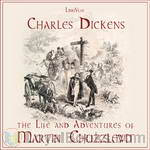 The Life and Adventures of Martin Chuzzlewit
The Life and Adventures of Martin Chuzzlewit
Dickens thought it was “in a hundred points, immeasurably the best” of his stories. Yet it was also one of his greatest flops. Compared to his other novels, The Life and Adventures of Martin Chuzzlewit was a dismal failure in terms of sales and the main reason for Dickens falling out with his long term publisher Chapman & Hall. They invoked a penalty clause and demanded that he pay back a portion of the advance which he refused. Martin Chuzzlewit was also dimly received in Dickens friendly America... | |
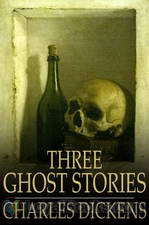 Three Ghost Stories
Three Ghost Stories
As a gifted writer with a strong interest in supernatural phenomena, Charles Dickens produced a string of ghost stories with enduring charm. Three of them are presented here, of which The Signal Man is one of the best known. Though quite different from his most celebrated realistic and humorous critical novels, these ghost stories, Gothic and grotesque as they are, are of good portrayal, and worth a read/listen. Summary by Vivian Chan | |
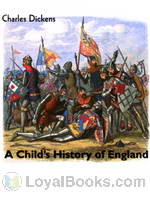 A Child's History of England
A Child's History of England
A Child’s History of England first appeared in serial form, running from January 25, 1851 to December 10, 1853 and was first published in three volume book form in 1852, 1853, and 1854. Dickens dedicated the book to “My own dear children, whom I hope it may help, bye and bye, to read with interest larger and better books on the same subject”. The history covered the period between 50 BC and 1689, ending with a chapter summarising events from then until the ascension of Queen Victoria. | |
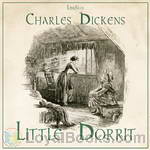 Little Dorrit
Little Dorrit
Originally published in monthly installments between 1855 and 1857, the novel focuses on the various forms of imprisonment, both physical and psychological, while also concentrating on dysfunctional family ties. Accordingly, Dickens avidly criticizes the social deficiencies of the time including injustice, social hypocrisy, the austerity of the Marshalsea debtors’ prison, and bureaucratic inefficiency. The novel kicks off with the introduction of William Dorrit, the oldest prisoner in the Marshalsea prison, who is also referred to as The Father of the Marshalsea... | |
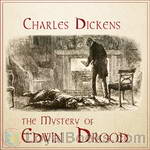 The Mystery of Edwin Drood
The Mystery of Edwin Drood
The Mystery of Edwin Drood is the final novel by Charles Dickens. It is a mystery indeed; the serial novel was just half completed at the time of Dickens’ death – leading to much speculation how it might have ended.The novel is named after Edwin Drood, one of the characters, but it mostly tells the story of his uncle, a choirmaster named John Jasper, who is in love with his pupil, Rosa Bud. Miss Bud is Drood’s fiancée, and has also caught the eye of the high-spirited and hot-tempered Neville Landless! Landless comes from Ceylon with his twin sister, Helena... | |
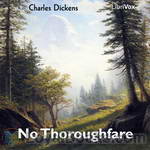 No Thoroughfare
No Thoroughfare
Two boys from the Foundling Hospital are given the same name, with disastrous consequences in adulthood. Two associates, wishing to right the wrong, are commissioned to find a missing heir. Their quest takes them from fungous wine cellars in the City of London to the sunshine of the Mediterranean — across the Alps in winter. Danger and treachery would prevail were it not for the courage of the heroine and the faithful company servant. The story contains crafted descriptions, well-drawn and diverse... | |
 A House to Let
A House to Let
A House to Let is a novella originally published in 1858 in the Christmas edition of Dickens’ Household Words magazine. Each of the contributors wrote a chapter (stories within a story, and in the case of Adelaide Anne Procter, as a story in verse) and the whole was edited by Dickens. The plot concerns an elderly woman, Sophonisba, who notices signs of life in a supposedly empty dilapidated house (the eponymous “House to Let”) opposite her own, and employs the efforts of an elderly admirer, Jabez Jarber, and her servant, Trottle, to discover what is happening within. | |
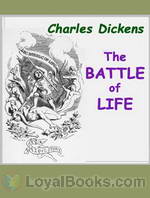 The Battle of Life
The Battle of Life
While "The Battle of Life" is one of Charles Dickens' Christmas Books - his annual release of a story just before Christmas - this one breaks the tradition by not being concerned with Christmas. Rather, its subtitle, "A Love Story", reveals more of the plot. The major events of this book take place on land that once was a battleground. That is just a backdrop for Dickens' idea of the real battle of life - finding and winning the right partner, so that life will go on to the next generation. The family that lives there is rather confused in its affections and intentions regarding who should end up with whom... | |
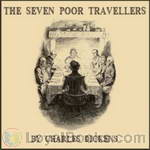 The Seven Poor Travellers
The Seven Poor Travellers
One of Dickens’ Christmas stories, this was first published as part of the Christmas number of Household Words for 1854. The first chapter relates Dickens’ visit to the ancient Richard Watts’s Charity at Rochester. The second chapter is the touching story of “Richard Doubledick”, which Dickens supposedly told the travellers, and Dickens’ journey home on Christmas morning provides the short concluding chapter. | |
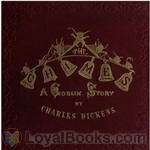 The Chimes
The Chimes
The Chimes: A Goblin Story of Some Bells that Rang an Old Year Out and a New Year In is the second of Charles Dickens' Christmas books, published in 1844. Its contemporary setting is the "Hungry Forties", a time of social and political unrest, and the book has a strong moral message. It remained popular for many years, although its fame has since been eclipsed by that of A Christmas Carol, the first of the series. Our hero Toby ("Trotty") Veck is a poor but hard-working man, whose beloved daughter Meg is due to marry on New Year's Day... | |
 The Haunted Man and the Ghost's Bargain
The Haunted Man and the Ghost's Bargain
The Haunted Man and the Ghost’s Bargain, A Fancy for Christmas-Time, (better known as The Haunted Man and the Ghost’s Bargain) is a novella by Charles Dickens first published in 1848. It is the fifth and last of Dickens' Christmas novellas. The story is more about the spirit of the holidays than about the holidays themselves, harking back to the first of the series, A Christmas Carol. The tale centers around a Professor Redlaw and those close to him. | |
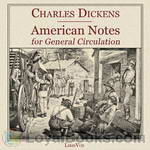 American Notes for General Circulation
American Notes for General Circulation
American Notes for General Circulation is a travelogue by Charles Dickens detailing his trip to North America from January to June, 1842. While there he acted as a critical observer of these societies almost as if returning a status report on their progress. This can be compared to the style of his Pictures from Italy written four years later, where he wrote far more like a tourist. His American journey was also an inspiration for his novel Martin Chuzzlewit. | |
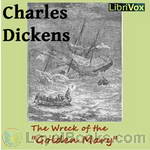 The Wreck of the Golden Mary
The Wreck of the Golden Mary
A short story of a ship wreck in 1851 trying to round Cape Horn on its way to the California gold fields. Poignant and well written. ( | |
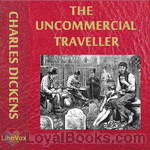 The Uncommercial Traveller
The Uncommercial Traveller
The Uncommercial Traveller is a collection of literary sketches and reminiscences written by Charles Dickens. In 1859 Dickens founded a new journal called All the Year Round and the Uncommercial Traveller articles would be among his main contributions. He seems to have chosen the title and persona of the Uncommercial Traveller as a result of a speech he gave on the 22 December 1859 to the Commercial Travellers' School London in his role as honorary chairman and treasurer. The persona sits well with a writer who liked to travel, not only as a tourist, but also to research and report what he found; visiting Europe, America and giving book readings throughout Britain... | |
 Hunted Down: the detective stories of Charles Dickens
Hunted Down: the detective stories of Charles Dickens
| |
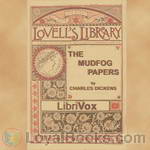 Mudfog and Other Sketches
Mudfog and Other Sketches
The Mudfog Papers was written by Victorian era novelist Charles Dickens and published from 1837–38 in the monthly literary serial Bentley's Miscellany, which he then edited. They were first published as a book as 'The Mudfog Papers and Other Sketches. The Mudfog Papers relates the proceedings of the fictional 'The Mudfog Society for the Advancement of Everything', a Pickwickian parody of the British Association for the Advancement of Science founded in York in 1831, one of the numerous Victorian learned societies dedicated to the advancement of Science... | |
 Pictures from Italy
Pictures from Italy
e: Dickens takes time off his novels to give an account of travels which he and his family undertook in France and Italy. There are vivid descriptions of the places, but also of the people and their lives. | |
 The Letters of Charles Dickens Vol. 1, 1833-1856
The Letters of Charles Dickens Vol. 1, 1833-1856
| |
 Holiday Romance
Holiday Romance
| |
 A Message from the Sea
A Message from the Sea
| |
 Lazy Tour of Two Idle Apprentices
Lazy Tour of Two Idle Apprentices
| |
 Mugby Junction
Mugby Junction
| |
 To Be Read at Dusk
To Be Read at Dusk
| |
 The Holly-Tree
The Holly-Tree
| |
 Doctor Marigold
Doctor Marigold
| |
 The Lamplighter; a farce in one act
The Lamplighter; a farce in one act
| |
 Somebody's Luggage
Somebody's Luggage
| |
 Tom Tiddler's Ground
Tom Tiddler's Ground
| |
 Reprinted Pieces
Reprinted Pieces
| |
 Perils of Certain English Prisoners
Perils of Certain English Prisoners
| |
 Mrs. Lirriper's Legacy
Mrs. Lirriper's Legacy
| |
 Going into Society
Going into Society
| |
 Mrs. Lirriper's Lodgings
Mrs. Lirriper's Lodgings
| |
 Sketches of Young Couples
Sketches of Young Couples
| |
 Speeches: Literary and Social
Speeches: Literary and Social
| |
 Sunday under Three Heads
Sunday under Three Heads
| |
 All the Year Round: Contributions
All the Year Round: Contributions
| |
 George Silverman's Explanation
George Silverman's Explanation
| |
 Sketches of Young Gentlemen
Sketches of Young Gentlemen
| |
 Mugby Junction
Mugby Junction
| |
 Miscellaneous Papers
Miscellaneous Papers
| |
By: Sir Arthur Conan Doyle (1859-1930) | |
|---|---|
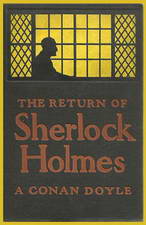 The Return of Sherlock Holmes
The Return of Sherlock Holmes
A young gambler is found shot dead in a closed room. Dr. Watson, who still mourns the disappearance of his famous friend is intrigued enough to step out of his house and take a look at the crime scene. A crowd has gathered there, curiously gazing up at the room where the crime is supposed to have taken place. Watson inadvertently jostles against an elderly, deformed man and knocks a stack of books from the fellow's hand. The man curses Watson vilely and disappears into the throng. It suddenly occurs to Watson that one of the books that he had helped the stranger pick up had seemed familiar... | |
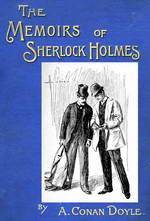 The Memoirs of Sherlock Holmes
The Memoirs of Sherlock Holmes
For more than a century and a quarter, fans of detective fiction have enjoyed the doings of the iconic sleuth, Mr. Sherlock Holmes. In the company of his faithful companion, Dr Watson, Holmes has consistently delighted generations of readers. Created by a Scottish writer and physician, Sir Arthur Conan Doyle, this immortal private eye has solved cases for kings and commoners, lovely damsels and little old ladies, engineers and country squires and a legion of others who come to him in distress and perplexity... | |
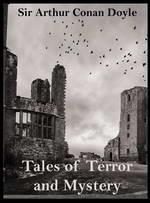 Tales of Terror and Mystery
Tales of Terror and Mystery
Though Sir Arthur Conan Doyle is best known for his detective stories, he also wrote other short stories which are masterpieces of mystery and suspense. In some of the stories in “Tales of Terror and Mystery”, a suppressed uneasiness gradually builds up and evolves into sheer terror. In others, the story line unexpectedly changes and comes to a horrific conclusion. Sit back in the comfort of your armchair and let yourself be transported to the strange but compelling world created by Sir Arthur Conan Doyle. | |
 The Sign of the Four
The Sign of the Four
A secret shared by four convicts and two prison guards, a daughter in search of her missing father, a strange gift of a single pearl received every year, a fabulous treasure buried in the ancient Agra Fort in India, an eccentric detective being consulted to solve a deadly puzzle. All these events are set against the turbulent backdrop of the Great Indian Mutiny of 1857 in the second Sherlock Holmes novel by Sir Arthur Conan Doyle, The Sign of the Four. Mary Morstan, a lovely young woman, comes to the Baker Street lodgings shared by Holmes and Dr Watson... | |
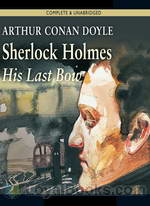 His Last Bow
His Last Bow
The disappearance of a German spy and the gathering storm that foretells the prelude to World War I is what greets you in this riveting book. The further you read the more mysteries unfold like secret submarine plans with some pages missing found in the hands of a corpse. There's also family insanity in Cornwall, a dead Spaniard and mafia hiding in an empty London flat. His Last Bow was published in the Strand Magazine circa 1908 and included several other short stories as well. Even during Sir Arthur Conan Doyle's own lifetime, Holmes had acquired cult status... | |
 The Valley of Fear
The Valley of Fear
Doyle's final novel featuring the beloved sleuth, Sherlock Holmes, brings the detective and his friend to a country manor where they are preceded by either a murder or a suicide. A secretive organization lies culprit and an infiltration of it is in order. | |
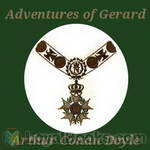 The Adventures of Gerard
The Adventures of Gerard
These lesser known stories were penned by Conan Doyle during the period between killing off Sherlock Holmes in 1893 and reluctantly resurrecting him some ten years later. The swashbuckling, eponymous hero, Etienne Gerard, is one of Napoleon's gallant French Hussars, who considers himself the finest of them all. Through these "Boys Own Adventures", Conan Doyle pokes gentle fun at both the French and the English. This is the second volume containing eight adventures. | |
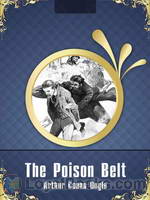 The Poison Belt
The Poison Belt
Three years after the events that took place in The Lost World, Professor Challenger urgently summons his fellow explorers (Professor Summerlee, Lord John Roxton, and reporter E.D. Malone) to a meeting. Oddly, he requires each to bring an oxygen cylinder with him. What he soon informs them is that from astronomical data and just-received telegraphs of strange accidents on the other side of the world, he has deduced that the Earth is starting to move through a region of space containing something poisonous to humankind... | |
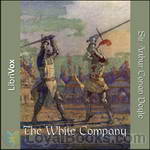 The White Company
The White Company
Set during the Hundred Years’ War with France, The White Company tells the story of a young Saxon man who is learning what it is to be a knight. Raised by Cistercian Monks and rejected by a violent elder brother, Alleyn Edricson takes service with one of the foremost knights in the country. When Alleyn falls in love with the knight’s daughter, he must prove himself to be a courageous and honourable knight before he can win her hand. Alleyn and his friends set forth with the other men-at-arms to join Prince Edward in Bordeaux, from where they will take part in the Prince’s campaign into Spain... | |
By: Jules Verne (1828-1905) | |
|---|---|
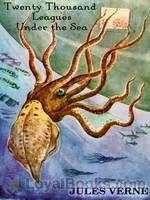 Twenty Thousand Leagues Under the Sea
Twenty Thousand Leagues Under the Sea
An early science fiction novel written by the second most translated author, French writer Jules Verne, the classic tale depicts an incredible sea expedition on board a state-of-the-art submarine. First published in 1870 and a part of the Voyages Extraordinaires series, the novel is regarded as one of the most thrilling adventure stories and one of Verne’s greatest pieces of work. Immersed in themes of exploration, avant-garde technology, and man’s insatiable desire for knowledge and scientific progression, Twenty Thousand Leagues Under the Sea has been an influence for many writers as well as an inspiration for numerous film adaptations... | |
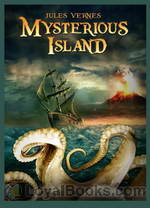 The Mysterious Island
The Mysterious Island
The Mysterious Island is another exquisite novel written by the master of adventure writing, Jules Verne. The novel has been seen as the sequel to two other famous novels written by the same author: Twenty Thousand Leagues Under the Sea and In Search of the Castaway. The story revolves around five Americans who live in a dark and harsh environment as prisoners of the American Civil War. Depleted by famine and death all around them, the five war prisoners take a big risk and escape by hijacking a hot air balloon... | |
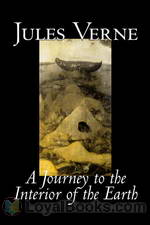 A Journey to the Interior of the Earth
A Journey to the Interior of the Earth
A historical manuscript penned by a medieval Norse poet. A mysterious code. Three intrepid explorers. A subterranean world filled with prehistoric creatures and proto-humans. These are some of the brilliant ideas that are superbly blended in A Journey to the Interior of the Earth by Jules Verne. Jules Verne, the French writer who created several works of science fiction, adventure stories and very popular novels, wrote A Journey to the Interior of the Earth in 1864. Some of his other books explore different aspects of geography, space and time travel... | |
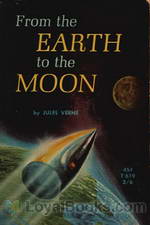 From the Earth to the Moon
From the Earth to the Moon
One of the earliest examples of literature written in the science fiction genre, From the Earth to the Moon is a part of the Voyages Extraordinaires series by French novelist Jules Verne. Written more than a century before the Apollo mission, Verne’s classic is somewhat a prophetic novel of man’s travel to the moon with its thorough and descriptive detail. A remarkable blend of action, humor, science, and audacious schemes, the timeless classic is sure to fascinate with its unique vision of lunar exploration... | |
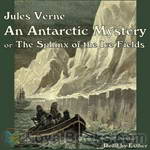 An Antarctic Mystery or The Sphinx of the Ice Fields
An Antarctic Mystery or The Sphinx of the Ice Fields
A wonderful coming together of two writers who wrote their books more than half a century apart. Neither of them had ever visited the remote islands they were writing about yet they provided inspiration for a couple of exciting adventure tales. In 1838, Edgar Allan Poe published The Narrative of Arthur Gordon Pym of Nantucket. It was the only complete novel published by the American author. It was the story of a young boy who stows away on board a whaling ship and it goes on to relate the events that follow... | |
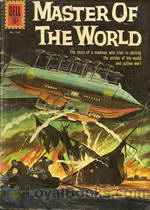 The Master of the World
The Master of the World
Published in 1904, The Master of the World is the penultimate novel in the Voyages Extraordinaires series, by renowned French novelist and pioneer of science fiction, Jules Verne. The novel acts as a sequel to Verne’s novel Robur the Conqueror, and consequently brings back some of its most notable characters, including the brilliant, yet villainous inventor Robur. Set in the summer of 1903, the adventure kicks off when a string of enigmatic events have been reported in the western part of North Carolina, leaving residents in fear of a possible volcanic eruption, even though the Blue Ridge Mountains are known to be non-volcanic ... | |
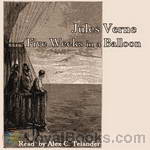 Five Weeks in a Balloon
Five Weeks in a Balloon
First published in 1863, Five Weeks in a Balloon depicts an insightful journey undertaken by a group of intrepid explorers into the partly uncharted African continent, as they aim to explore its exotic wonders. Apart from concentrating on themes including exploration, loyalty, friendship, determination, and honor, the novel also offers an endearing set of jovial characters and vivid imagery. Furthermore, the novel is the first book in Verne’s distinguished Voyages Extraordinaires series. The adventure begins when Dr... | |
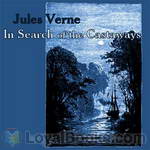 In Search of the Castaways
In Search of the Castaways
The book tells the story of the quest for Captain Grant of the Britannia. After finding a bottle cast into the ocean by the captain himself after the Britannia is shipwrecked, Lord and Lady Glenarvan of Scotland decide to launch a rescue expedition. The main difficulty is that the coordinates of the wreckage are mostly erased, and only the latitude (37 degrees) is known.Lord Glenarvan makes it his quest to find Grant; together with his wife, Grant’s children and the crew of his yacht the Duncan they set off for South America... | |
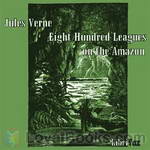 Eight Hundred Leagues on the Amazon
Eight Hundred Leagues on the Amazon
First published in 1881, Eight Hundred Leagues on the Amazon is an adventure novel in two parts by Jules Verne, having a basis in codes and cryptography. Unlike many of his other stories, it is not a work of science fiction. Rather, it describes a voyage down the Amazon River on a large raft, or jangada). Many aspects of the raft, scenery, and journey are described in detail. | |